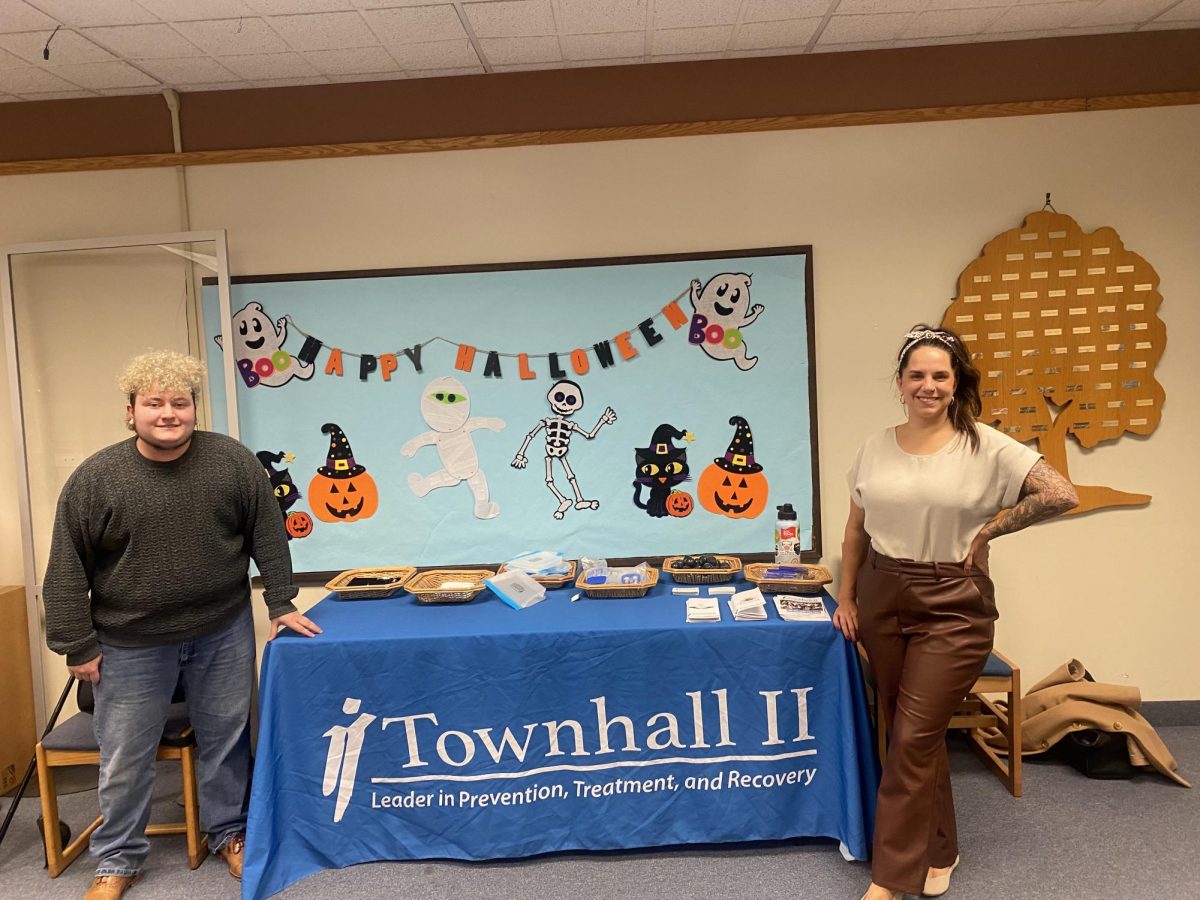Editor’s note: The definition of sextortion was edited for clarity.
Townhall II discussed the importance of prevention and awareness of sextortion with a presentation titled “Sextortion Prevention and Awareness” at the Portage County District Library Monday evening.
During the presentation, Townhall II, a program that aims to provide communities with education and advocacy, talked about 17-year-old Streetsboro student James Woods nearly a year after his suicide. Woods was a victim of sextortion, which her presentation described as the sexual exploitation of minors using blackmail, either through the form of money or sexual favors.
Sextortion victims are typically between the ages of 14 and 17, but children as young as eight have been targeted.
“Sextortion can be online or offline,” said Leanne Biltz, education and outreach coordinator at Children’s Advocacy Center of Portage County. “Most of the time it will start off looking like a relationship, all warm and fuzzy, and then it takes a turn. Victims will receive messages saying ‘Send naked pictures,’ ‘Do this or else.’ They are trying to humiliate the victim in hopes of extorting them.”
Biltz said sextortion is based on fear. Perpetrators will blackmail victims in the form of threats, finding their address and contacting their family. Victims are staying silent because they think they have no resources.
Since children are so vulnerable to sextortion, it’s important they feel they have trusted adults in their life they can talk to if they are being exploited, Biltz said.
“Talk to your kids about online safety,” Biltz said. “Monitor what websites your kids are on and who they are chatting with. Check in with them, ask them questions and monitor their internet use.”
Portage County officials are attempting to address the issue of sextortion through education as well as legislation. On July 5, 2023, Ohio Governor Mike DeWine signed House Bill 33, which includes the Social Media Parental Notification Act, a law that will require social media companies like Facebook, Instagram, TikTok, Snapchat and YouTube to get parental consent before allowing children under 16 on their platforms.
“I like the bill,” said Mallen Rush, victims services advocator for Townhall II. “I think it can possibly help, but the main thing at the end of the day is just making sure you are monitoring your kids as a parent and making sure that your kids know that you’re safe to talk to.”
Biltz said sextortion is a growing epidemic that has caused devastating damage to children and families. While there is no single way to prevent sextortion, being an advocate for children and making them aware they are victims in instances of sextortion is important. Children often think they have no one to turn to in these situations, and opening up the dialogue so children know they have someone to talk to can help prevent tragedy.
“You have to tell your children that you’re someone safe they can talk to,” Rush said. “A lot of times in these situations the kid thinks they’re in trouble, that they’re going to get their stuff taken or be hit even, and making sure kids know that they have someone safe to turn to can change how they react if they’re ever in this situation.”
Kaitlyn Mitchell is a reporter. Contact her at [email protected].





